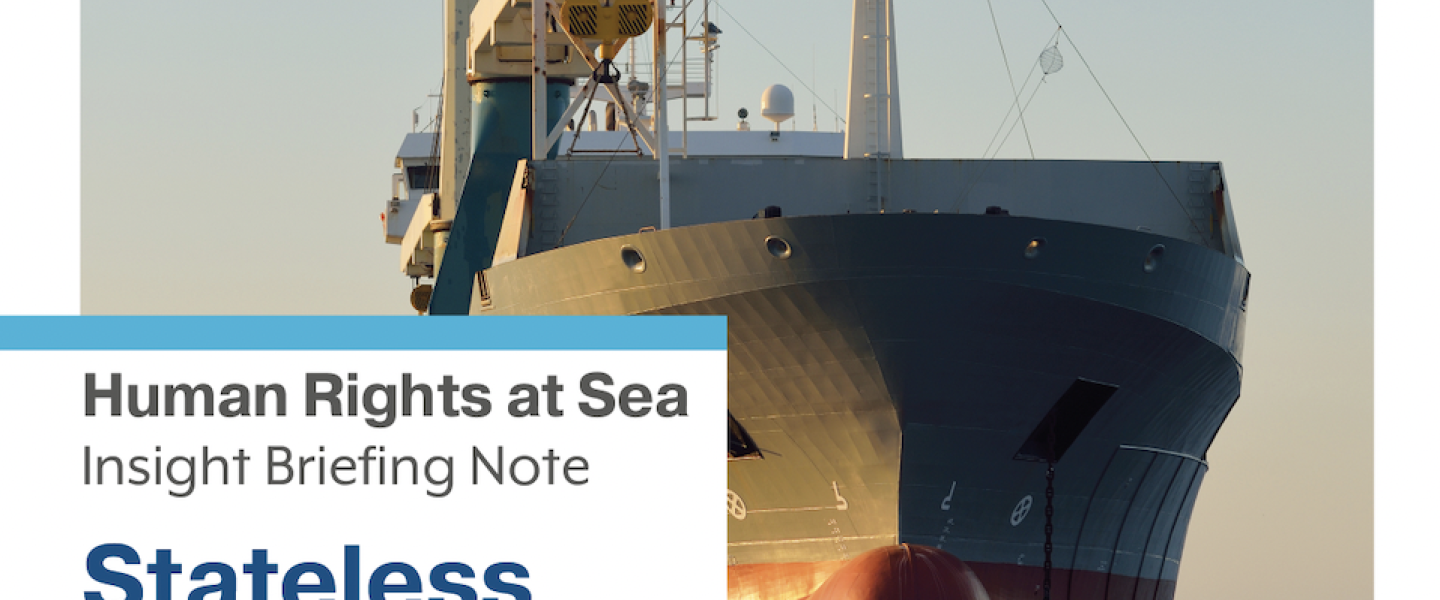Press Release
10 June 2021
London. UK. The problem of stateless vessels operating at sea has been an issue which has occurred for millennia, but today in an ever-increasingly regulated maritime environment and with increasing public exposure of crew abuse it should be at the forefront of industry, state and civil-society awareness.
Today, Human Rights at Sea with legal support from shipping and transport lawyers at Reed Smith LLP and Counsel of Quadrant Chambers, London, publishes a commercial legal review of Stateless Vessels. It highlights the recent case of the MT SEA PRINCESS first reported by HRAS on 30 January 2021, and which is now being scrapped in Alang, India.
Background
On land, the law of the land protects human rights. This protection extends to seafarers on a ship that has been entered on the register of ships administered by that country. When registered, the ship is entitled to fly the flag of that country (known as the ‘Flag State’). The ship will be subject to the laws of the Flag State, which is then said to have ‘jurisdiction’ over the ship, as discussed below.
As the name suggests, a stateless ship is one without national identity. Statelessness arises when the ship is not registered in any State and is not entitled to fly the flag of any State.
Statelessness arose in the case of the SEA PRINCESS when she was removed from the Cook Islands register whilst on the high seas and en route to Alang in India for demolition. Following the SEA PRINCESS’ removal from the register, she was no longer entitled to fly the Cook Islands’ flag.
Entitlement to flag is important as it allows the ship to possess a ‘national character’ and gives certain rights to the seafarers on board under the laws of the Flag State, regardless of the ship’s geographical location.
Therefore, seafarers on board a stateless ship are deprived of rights that they would have otherwise been entitled to under the Flag State law. However, as discussed, there are other States (and other entities) capable of assisting seafarers on board stateless ships.
HRAS Comment
The effect of deletion from a flag register or otherwise commonly referred to as de-flagging, leaves the vessel and its crew without flag state jurisdictional protections especially if operating in international waters. Often the crew will not be aware this has occurred.
There appears an emerging need to have greater clarity as to the scope and scale of the problem, and is why our charitable NGO with legal support from Reed Smith LLP and Counsel of Quadrant Chambers, London, have produced this ‘Stateless Vessel’ insight briefing note for greater public international awareness.
Read More
Related News
LLoyds List: ‘Abandoned crew languish as cases drag on‘ Nidaa Bakhsh 10 June 2021
Contact
Human Rights at Sea: enquiries@humanrightsatsea.org
ENDS.
